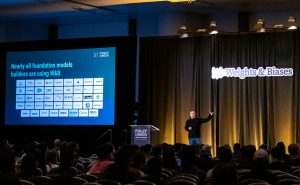HANOVER – A new report from Accenture (NYSE: ACN) sheds light on the pervasive integration of artificial intelligence (AI) across the manufacturing sector, indicating a widespread effort to enhance products and services. While nearly all manufacturers are experimenting with AI, the report reveals that only a select few are effectively reinventing products at scale, with challenges such as data quality and security hindering broader adoption.
Based on a comprehensive survey of 500 manufacturing companies across Europe, North America, and Asia, the report underscores AI’s transformative potential when combined with mobile computing and big data analytics. Referred to as “Applied Intelligence,” this combination can not only revolutionize core operations but also enhance worker and customer experiences, and even reshape business models.
However, the study found that only 16 percent of organizations have established a comprehensive AI vision, with a mere 5 percent allocating resources to AI-driven product initiatives, and a mere 2 percent leveraging AI solutions at scale.
Eric Schaeffer, Senior Managing Director at Accenture, emphasizes the importance of AI in product reinvention, noting that while the journey is challenging, the business case for AI in industry is compelling.
The report outlines a four-stage journey towards AI-driven product reinvention: belief in AI’s potential, building a vision for AI integration, resource commitment, and execution at scale. Automotive companies appear to lead in AI adoption, with 9 percent reaching the third stage and 5 percent achieving the fourth. However, other sectors, such as consumer durables and industrial equipment, lag behind.
Companies that envision AI-enabled product reinvention focus on customer loyalty and deeper insights as key drivers. Meanwhile, those committing resources to AI initiatives prioritize building IT capabilities and necessary skills for large-scale implementation.
Looking ahead, Raghav Narsalay, Managing Director at Accenture, anticipates a rise in AI-driven product reinvention, as companies shift from experimentation to strategic integration. However, the pace of transformation may vary by industry, with priorities ranging from revenue diversification to innovation architecture evolution.
The full research report provides comprehensive insights into the current state and future trajectory of AI adoption in manufacturing.



















